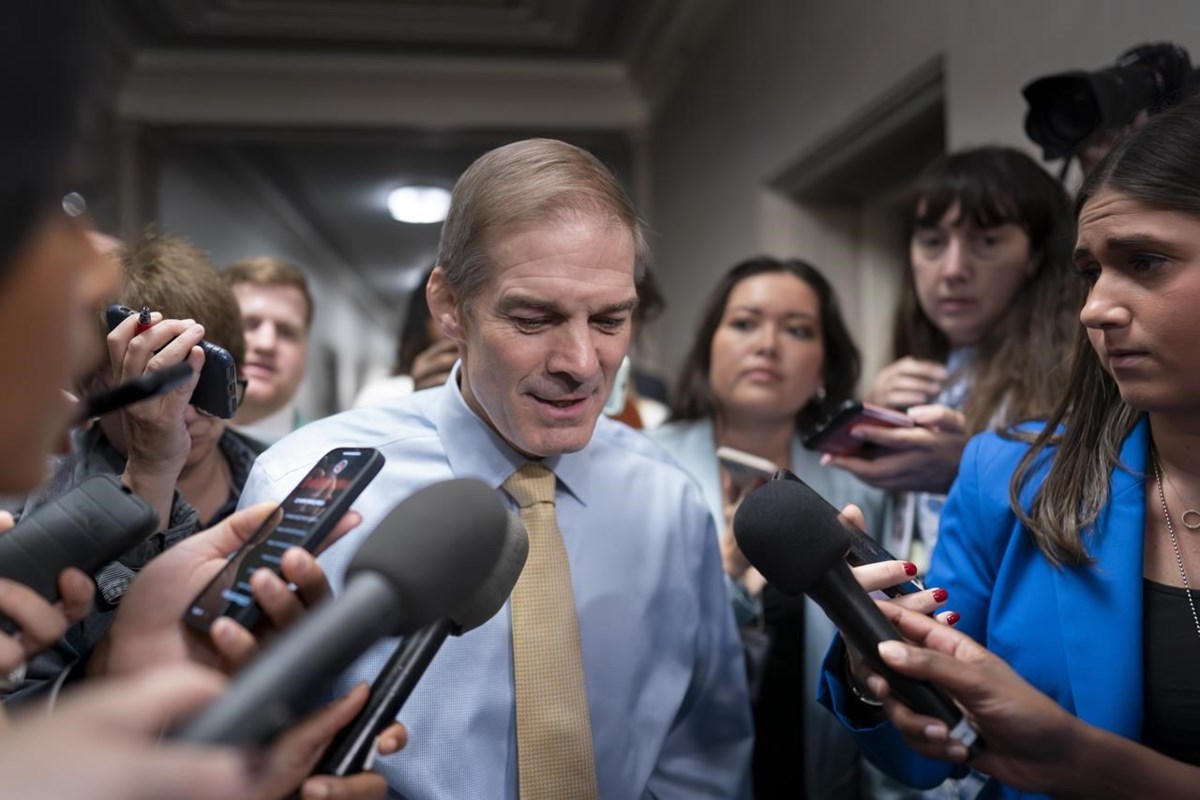In a surprising turn of events, former President Donald Trump has thrown his weight behind Representative Jim Jordan, nominating him as the Speaker of the House candidate. This announcement, made amidst heightened political tensions, has sent shockwaves through the nation’s capital, raising questions about the future direction of the House of Representatives.
Jim Jordan, a Republican congressman from Ohio, is known for his staunch conservative views and unwavering support for Trump’s policies during his presidency. Trump’s endorsement adds significant momentum to Jordan’s candidacy, making him a formidable contender for the position of Speaker of the House.
Jim Jordan, a founding member of the House Freedom Caucus, has been a prominent conservative voice within the Republican Party. His nomination as Speaker of the House candidate comes at a crucial time, with the Republicans aiming to regain control of the House in the upcoming midterm elections.
Donald Trump’s endorsement carries substantial influence within the Republican base. His support for Jordan reflects the ongoing power struggle within the party, as various factions vie for control and direction.
The nomination of Jim Jordan as the Speaker nominee has evoked mixed reactions from both sides of the political spectrum. Republican loyalists and Trump supporters have lauded the decision, viewing it as a unifying force within the party.
However, Democrats and some moderate Republicans have expressed concerns about Jordan’s nomination. They cite his controversial stances on issues such as healthcare, immigration, and gun control as potential obstacles to bipartisan cooperation. Some fear that Jordan’s Speaker candidacy might further deepen the partisan divisions in the House.
Also Read: AI Industry’s Energy Consumption Could Rival That of The Netherlands
If elected as Speaker of the House, Jim Jordan would likely steer the legislative agenda in a more conservative direction. This could mean a focus on rolling back regulations, tax cuts, and a stronger emphasis on border security and immigration reform.
Additionally, Jordan’s close alignment with Trump raises questions about the extent to which the former president’s influence would permeate the legislative process. Trump’s unconventional approach to politics and policymaking could potentially reshape the dynamics of the House, impacting both domestic and foreign policy decisions.
As the nation watches closely, the nomination of Jim Jordan as Speaker of the House candidate sets the stage for a contentious and closely watched midterm election. The outcome of this election will not only determine the composition of the House but also shape the direction of national policies for years to come.
With political polarization at an all-time high, the choice of Speaker carries significant weight. The American people are left waiting to see whether Jordan’s nomination will lead to a new era of conservative leadership in the House or further deepen the existing political divisions that have come to define American politics in recent years.




